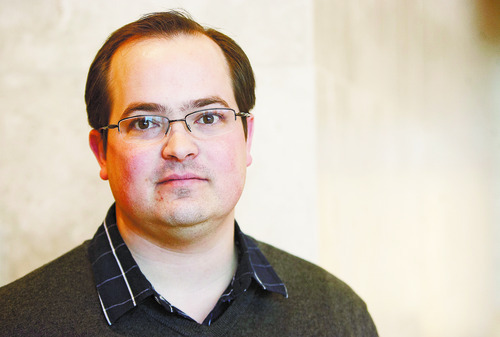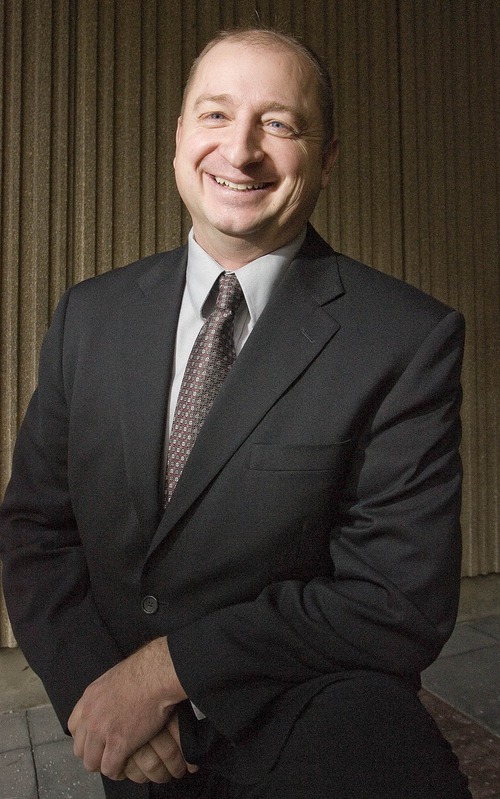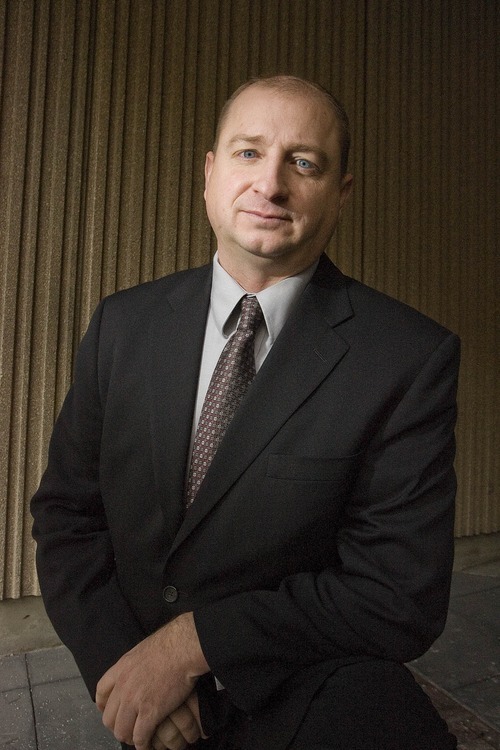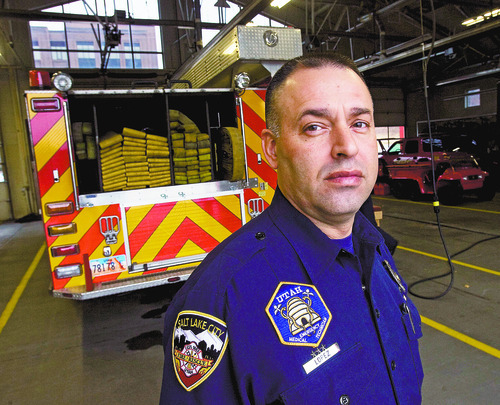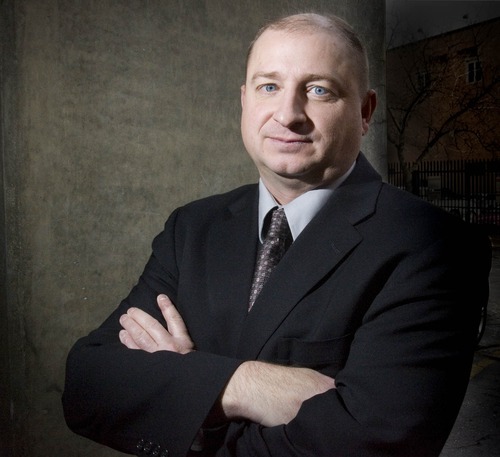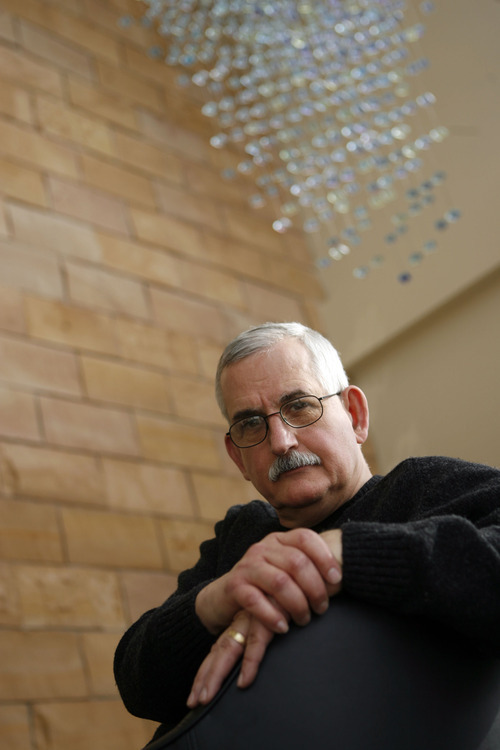This is an archived article that was published on sltrib.com in 2011, and information in the article may be outdated. It is provided only for personal research purposes and may not be reprinted.
A young Marine lies on his belly, sobbing after he and his comrades shoot up an Iraqi family whose white Chevy Citation speeds into the middle of a firefight. Another Marine, bone-weary on the march into Baghdad, falls asleep while replacing a sock. A third is whisked away from war with a torn-up face and survivor's guilt because his buddy, a husband and father of two from Layton, died in the same foxhole.
These are some of the poignant stories told by Iraq and Afghanistan veterans to historians at the University of Utah's American West Center.
Matthew Basso, director, said the center decided three years ago to interview veterans of the latest wars while their experiences are raw, in contrast to the belated nationwide effort to gather oral histories of World War II vets.
"I thought, after 40 years are we going to find ourselves in the very situation where we're worried about losing the stories that we thought were so important to our civic heritage?" Basso said.
So far, 33 veterans of Iraq and Afghanistan have been interviewed for the Saving the Legacy project, and the center hopes hundreds more veterans from Utah and the Intermountain West — or those who served on military bases in the region — will volunteer their stories.
Basso particularly hopes to collect the stories of women, whose role in war has changed dramatically.
The center plans to post the transcripts online, via a link from the center's website, http://www.awc.utah.edu. Veterans can chose anonymity or even to keep their stories closed until after their deaths.
The center, with offices at Fort Douglas, is one of the few oral-history projects in the country collecting stories from this century's wars. The military itself is interviewing vets, but those historians are often more interested in strategy and tactics, command and control, Basso said.
"We ask about society and culture, about what it meant to be a soldier in America during these years, about soldiers' interactions with the people they served with," said Basso, an Army vet who uses the term "soldier" as shorthand for all service men and women.
"Many of these interviewees have deep affection for their time in the military," he said. "But at the same time, they tell nuanced stories. There is remarkable honesty and truth and complexity in these pictures."
Among the themes that recur are the transformative power of serving in the military; the often small-mindedness, ineptitude and laziness of upper-level military officers; and the need for greater cultural awareness before troops are sent onto foreign soil.
Most of the interviews were conducted by Iraq veteran John Worsencroft, while earning his bachelor's and master's degrees in history at the U. He now is working on a doctorate at the Philadephia-based Temple University.
Worsencroft started with those he knew best, fellow Marines in Fox Company, 2nd Battalion, 23rd Marines, which is based at Fort Douglas. Worsencroft, who left the Marines in 2006, told his own story to Basso.
The reserve company, split between Salt Lake City and Las Vegas, is known as the Saints and Sinners. It was in on the historic invasion of Iraq in the spring of 2003.
The interviews give a blow-by-blow account of the march to Baghdad: the hunger the reservists endured as food supplies dwindled, the weeks without showers, the tragic loss of platoon sergeant James Cawley when a Humvee driver who forgot his night-vision goggles rolled over Cawley's foxhole.
They also give concrete detail to an experience many early invaders found: the welcome by Iraqi citizens who suffered under Saddam Hussein.
More than one Marine remembers being approached by Iraqis saying "Bush good! Bush good!"
Marine Ammon Grant recalls that the morning after a firefight in Baghdad, he was approached by an Iraqi man with a young boy. "It was broken, but he spoke good English … He said, 'I want my son to touch the men who freed us."
Other interviews, however, trace the disillusionment of Iraqis as their nation fell into civil war, and soldiers' misgivings about whether reconstruction would ever work.
Worsencroft said it's important to resist the temptation to draw a single narrative from veterans' experiences.
"When they served and under what conditions really colors how they view the war," Worsencroft said.
The war in Iraq lasted nearly nine years before the last troops pulled out this month. The war in Afghanistan is still raging after more than a decade.
The situation in those countries — indeed, in the United States — changed much during those years.
Even technology altered the experience of war for service men and women. Early on, they depended on snail mail and went weeks without communication from home. By the middle of the wars, fighters had daily access to email, video chats and social networks.
At the height of the bloodshed in Iraq, military recruiters could not meet their quotas. It took economic crisis at home to provide a ready supply of volunteers willing to risk their lives in the Middle East.
Just as experiences differ, so do assessments of the wars' rationale and execution.
"One of the most important lessons I learned is just how complex and diverse and differing peoples' opinions are, and how contradictory within the same person or within the same unit," Worsencroft said.
The stories of those who served on the ground — not just from the general's or policy-makers' perch — will help scholars and citizens better understand these wars and perhaps reconsider whether an all-volunteer military is the best approach, Worsencroft and Basso said.
"A lot of these veterans really question whether America knows enough about the military ... whether it's easier to start a war if you're not going to fight in a war," Basso said. "What does it mean for such a small percentage of our citizens to be the ones fighting these wars when, broadly, the nation hasn't had to sacrifice?"
Saving the Legacy
The American West Center at the University of Utah has been collecting veterans' stories for more than a decade as part of its Saving the Legacy project. The oral histories of more than 500 World War II veterans and a smattering from wars in Korea, Vietnam and the Gulf, are available at the U.'s Marriott Library Special Collections.
The center plans to put the transcripts of interviews with Iraq and Afghanistan veterans online, via a link from the center's website, http://www.awc.utah.edu. So far, 33 such veterans have been interviewed, and the center hopes others will volunteer.
Other oral histories can be found at the Library of Congress' Veterans History Project, http://www.loc.gov/vets, and at http://saintsatwar.org/, the website for an archive of Latter-day Saint veterans' collections held at the L. Tom Perry Special Collections Library at Brigham Young University. —
Faces of War
The greatest toll of war is borne by the military men and women who leave their homes and families to serve aboard. Learn about the sacrifices they make in today's Close-Up section, which profiles five Utah veterans. —
Want to share your story?
The American West Center at the University of Utah is looking for veterans of the Iraq and Afghanistan wars — plus any other wars — to share their stories.
awc.utah.edu/
801-581-7611 —
The Fallen
Utahns who died in recent military conflicts: http://extras.sltrib.com/thefallen/


